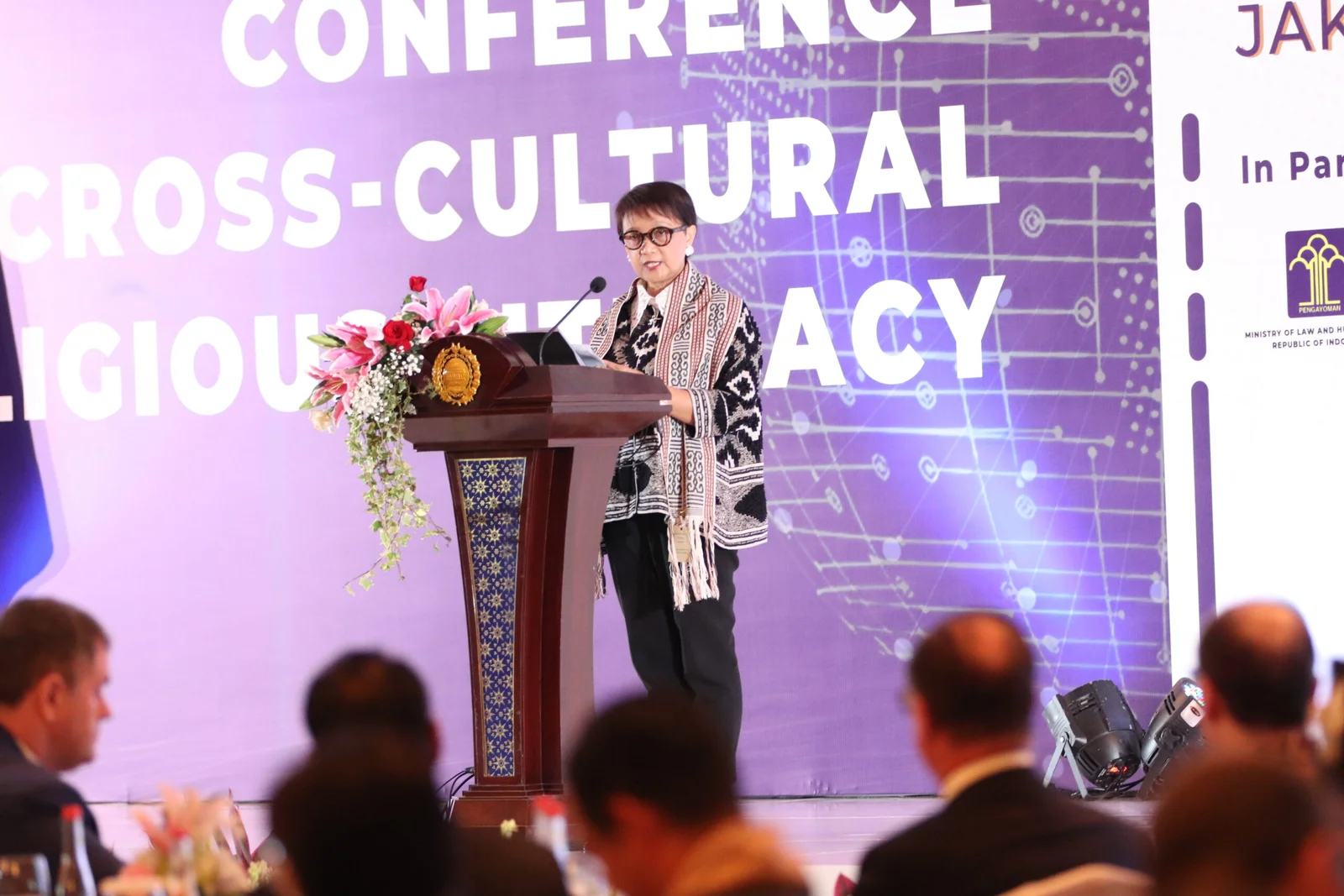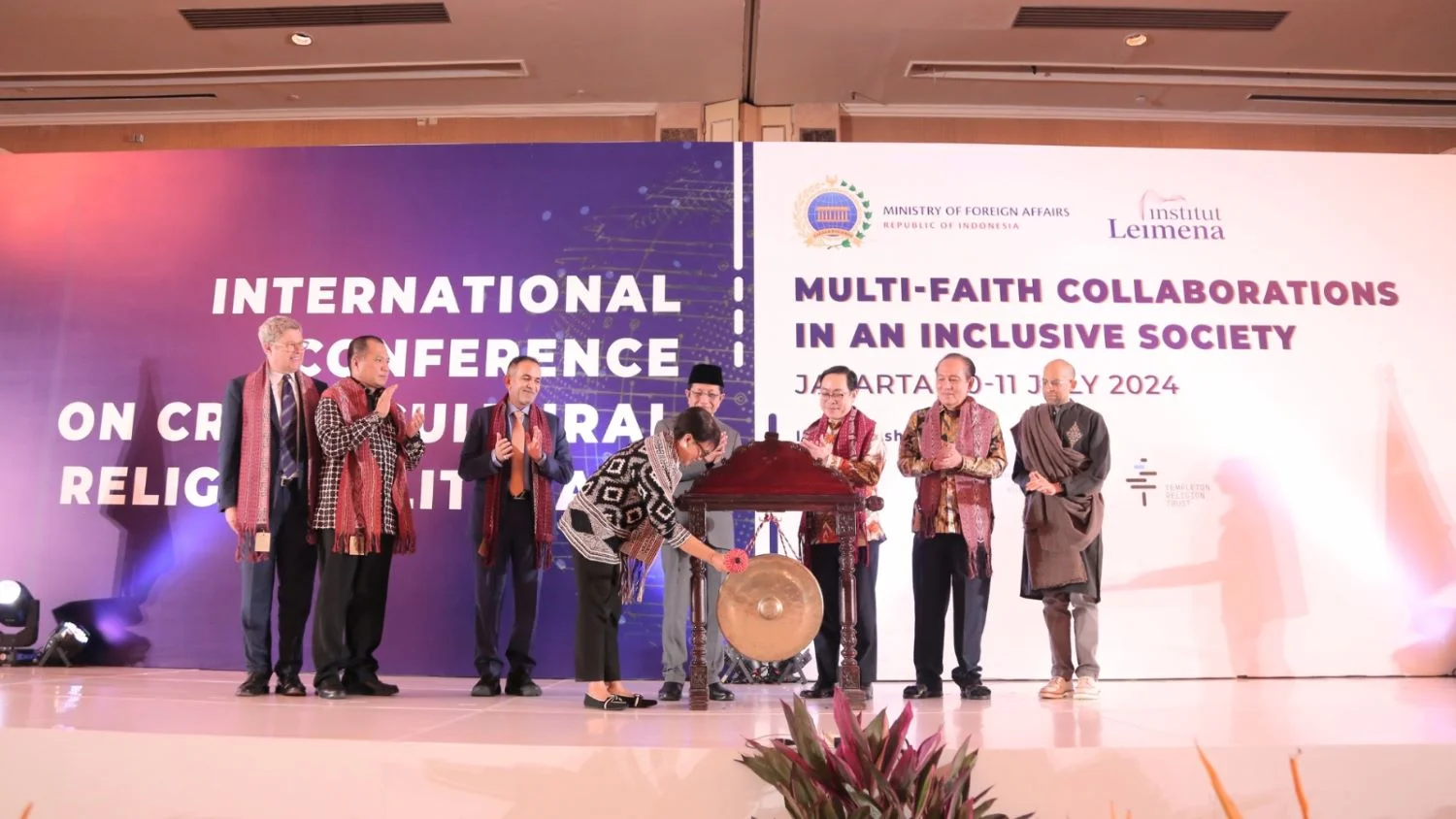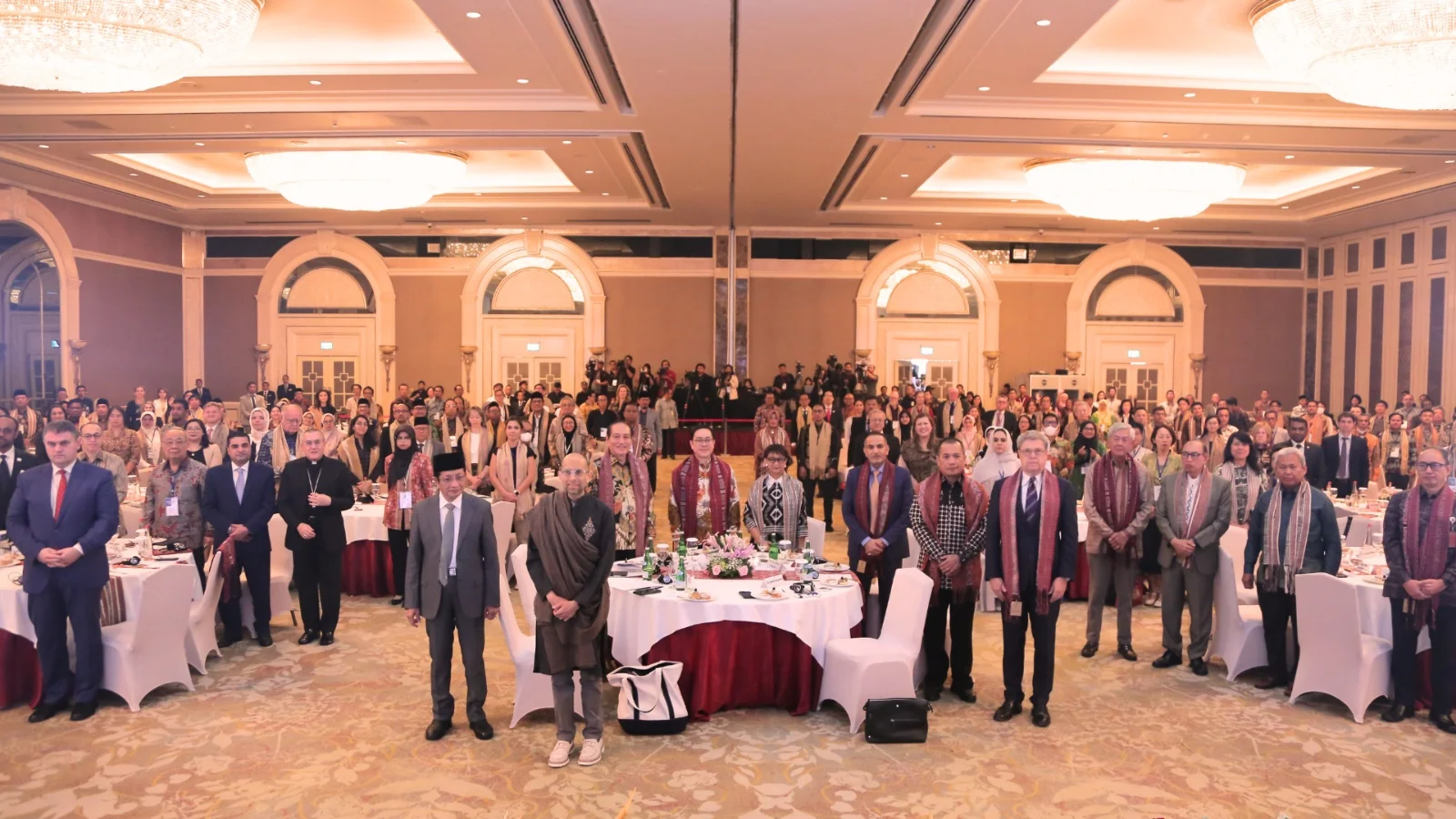Cross-Cultural Religious Literacy, an Effort to Understand Religious Diversity for Peace

Minister of Foreign Affairs of the Republic of Indonesia, Retno Marsudi, opened the International Conference on Cross-Cultural Religious Literacy on July 10th in Jakarta.
Jakarta – Indonesian Foreign Minister Retno Marsudi officially opened the International Conference on Cross-Cultural Religious Literacy (CCRL) with the theme “Multi-Faith Collaborations in an Inclusive Society”, which was held on July 10-11, 2024 in collaboration with the Ministry of Foreign Affairs and the Leimena Institute. In her remarks, on Wednesday (July 10), she emphasized cross-cultural religious literacy as an effort to understand religious diversity and foster collaboration between religious communities.
“My gratitude to our civil society organizations and media partners for their contributions to this significant conference. Special appreciation goes to the Leimena Institute, the driving force behind this event,” said Retno Marsudi at the International Conference on CCRL attended by around 200 participants and invitees from within and outside the country.
Retno stated that the quest for peace remains both urgent and elusive because our global landscape is very complex. Most concerning are more open conflicts claiming more lives worldwide, from the war in Ukraine to the situations in Afghanistan and Palestine, questioning the existence of solidarity and humanity.
“These conflicts are not inherently religious, but religious elements are often present, intensifying tensions. Therefore, understanding diverse faiths becomes crucial, an endeavor we must always nurture,” she said.

From left to right: Director of the International Center for Law and Religion Studies Brigham Young University Law School, Dr. Brett Scharffs, Director General of Human Rights of the Ministry of Law and Human Rights, Dr. Dhahana Putra, Secretary General of the Higher Committee of Human Fraternity United Arab Emirates, Dr. Khalid Al Ghaith, Grand Imam of Istiqlal Mosque, Nasaruddin Umar, Executive Director of the Leimena Institute, Matius Ho, Member of the Leimena Institute Association, Theo Sambuaga, and Program Director, Templeton Religion Trust, Iqbal Akhtar.
The opening ceremony was attended by 22 representatives of foreign countries including number of ambassadors, namely the Austrian Ambassador to Indonesia Thomas Loidl, the Jordanian Ambassador to Indonesia and ASEAN Sudqi Atallah Abd Alkader Al Omoush, the Romanian Ambassador Dan Adrian Balanescu, the Spanish Ambassador Francisco Aguilera Aranda, the United Arab Emirates Ambassador Abdulla Salem Al Dhaheri, and the Ambassador of the Holy See of the Vatican to the Republic of Indonesia Mgr Piero Pioppo.
Retno emphasized that resolving these conflicts requires conflicting parties to have a willingness to engage in constructive dialogue. But this willingness does not fall from the sky, we must pursue it. Political leaders bear this responsibility, but so do we, all elements of society, particularly religious leaders
“In Gaza alone, more than 37.000 people killed, most of them are women and children. All atrocities must be stopped. Humans and humanity should be put as top/number one priority,” she said.
She stated that freedom of each religion must be legally guaranteed and diversity must be respected. This is why is actively collaborating with the international community on three agendas. First, strengthening tolerance to prevent social polarization which could increase tensions and even open conflict.
Within ASEAN, Indonesia promotes the principle of ‘Unity in Diversity’, Bhineka Tunggal Ika, to foster cross-religious and cross-cultural understanding. The principle must continue to be upheld as we navigate the complexities of global affairs.
“Indonesia has 34 interfaith dialog partner countries, to collaborate in promoting literacy across cultures and religions,” said Retno.
Second, promoting inclusiveness. Diverse beliefs must be seen as an asset to our peace advocacy. When parties from various backgrounds participate in constructive dialogue, our solutions sharpen. Therefore, Indonesia earnestly engages global religious leaders.
Third, fostering multi-faith collaboration. This is the reason why we are here at this conference. Our stark differences must not stand in our way to bolster respect and collaboration for humanity.

Participants and invitees in the International Conference on Cross-Cultural Religious Literacy.
Meanwhile, the Executive Director of the Leimena Institute, Matius Ho, said that the core of cross-cultural religious literacy is how people with different religions and beliefs can build cooperation amidst the diversity that exists. It is recognized that Indonesia’s diversity makes it unique, but on the other hand, it still faces many challenges.
“Through this conference, we want to highlight cooperation in communities of different religions and beliefs to build an inclusive society. This is something simple in Indonesia, but if we look the current world situation, there are still many fears, concerns about differences such as Islamophobia, xenophobia. We have confidence in our experience as the Indonesian nation,” said Matius.
Director General of Information and Public Diplomacy of the Ministry of Foreign Affairs, Siti Nugraha Mauludiah, said that Indonesia through the CCRL program is considered to have become a pioneer because in three years it has trained at least 8.000 teachers and educators.
“The initiative held by the Leimena Institute is part of Indonesia’s public diplomacy in terms of increasing cross-cultural religious literacy as Indonesia’s soft power,” said Siti.
The International Conference on CCRL on July 10-11 is the second CCRL Conference after a similar event in November 2023 in collaboration with the Ministry of Law and Human Rights. This conference was held in a hybrid format via Zoom with the number of online registrants reaching more than 4.000 participants from around 21 countries.
